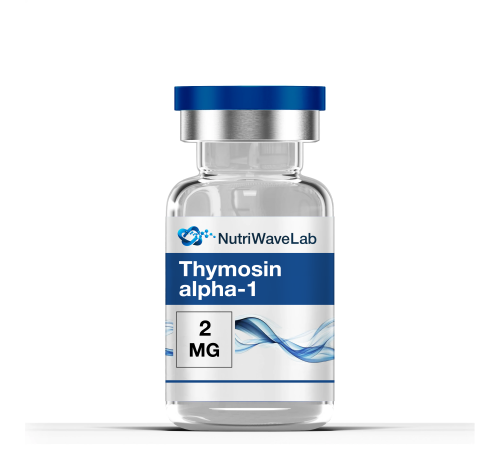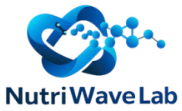
Thymosin Alpha-1 (Tα1) is a peptide fragment derived from the protein prothymosin alpha, consisting of 28 amino acids. Discovered in 1972, it has been researched for various applications, including chronic infections, respiratory disorders, hepatitis, and cancer. It's currently approved in 35 developing countries for managing chronic hepatitis B and C.
Clinical Benefits and Uses
Immune System Support: Thymosin Alpha-1
acts as an immune system modulator by enhancing the function of T cells and
dendritic cells, crucial for immune response.
Infection and Cancer Treatment: It is
effective against both acute and chronic infections, exhibiting antibacterial,
antiviral, and antifungal properties. It can suppress tumor growth and help
eradicate unhealthy cells.
Vaccine Effectiveness: Tα1 can increase the
effectiveness of vaccines and protect against oxidative damage.
Autoimmune Diseases: It helps in managing
autoimmune conditions by regulating immunity and inflammation.
Mechanism of Action Thymosin Alpha-1 regulates the production and function of T cells within the thymus gland, aiding their maturation and release to combat viruses and other pathogens. It also enhances immune responses to infections and cancer.
Clinical Research and Applications
Autoimmune Diseases: Studies suggest
benefits in managing conditions like rheumatoid arthritis, psoriatic arthritis,
and systemic lupus erythematosus.
Cancer: Research indicates effectiveness in
treating various cancers, including lung, colon, and breast cancer.
Chronic Conditions: Tα1 has been used for
chronic conditions such as hepatitis B and C, Lyme disease, and chronic
fatigue.
Administration and Dosage Thymosin Alpha-1 is available as an injection or nasal spray, with dosage and frequency determined by a healthcare provider based on individual health status and conditions.
Safety and Tolerance Generally well-tolerated, but discussing any preexisting conditions or other treatments with a doctor is essential. No major side effects have been noted in clinical trials.
Considerations for Use
Age and Health Status: Lower natural levels
of Tα1 with age or chronic conditions may make individuals more likely to
benefit from therapy.
Lifestyle: Enhancing lifestyle factors such
as diet, sleep, and exercise may complement the effects of Tα1 therapy.
Availability Thymosin Alpha-1 is an FDA-approved medication available by prescription. It may be administered by healthcare providers or self-administered in some cases.
What is Thymosin Alpha 1 Research Peptide?
Thymosin Alpha-1 (Tα1) is a peptide hormone composed of 28 amino acids, produced naturally by the thymus gland. The thymus plays a critical role in the immune system by training and developing T cells, which are essential for defending the body against infections, diseases, and potentially cancer. Clinically, Tα1 has been used to treat conditions such as hepatitis B and C, enhance immune function in viral infections, and address certain cancers.
How Does Thymosin Alpha 1 Function?
Tα1 operates through several mechanisms, including stimulating immune responses and exerting anti-proliferative effects on tumor cells. It interacts with toll-like receptors to modulate the immune response and affects cytokine expression, which can reduce inflammation—beneficial in conditions like chronic hepatitis.
Thymosin Alpha-1 and Immune Function
Thymosin Alpha-1 enhances the activity of immune cells such as T cells, B cells, macrophages, and natural killer (NK) cells. It achieves this by interacting with Toll-like receptors (TLRs) such as TLR3, TLR4, and TLR9, which activates downstream signaling pathways like IRF3 and NF-κB. This interaction boosts the immune response against pathogens.
Clinically, Tα1 has shown potential in treating hepatitis B, AIDS, and more recently, COVID-19. It has demonstrated promise in improving immune responses in severe COVID-19 cases, though its effectiveness is still being studied. Tα1 is also used as an adjuvant in vaccines, enhancing antibody responses, which is particularly beneficial for those with weakened immune systems.
Research indicates that Tα1 modulates the immune system by increasing levels of cytokines such as IL-2, IL-10, IL-12, interferon (IFN)-α, and IFN-γ. This modulation helps in the maturation of T cells into CD4+/CD8+ T cells and activates NK cells and CD8+ T cells, crucial for eliminating infected cells.
Thymosin Alpha-1 and Cancer
Tα1 has demonstrated a broad range of antitumor activities across different cancer types. Its mechanisms include inhibiting tumor cell proliferation, inducing apoptosis, enhancing tumor penetration, and modulating the immune system to combat cancer cells. This suggests Tα1 could be a valuable agent in cancer treatment, either alone or in combination with other therapies.
Breast Cancer: Tα1 inhibits breast cancer
cell proliferation and induces apoptosis through PTEN-mediated suppression of
the PI3K/Akt/mTOR signaling pathway, particularly where Tα1 enhances PTEN
expression.
Lung Cancer: Modified Tα1, combined with
RGD to improve tumor penetration, inhibits lung cancer growth in vivo,
addressing challenges in drug delivery to solid tumors.
Prostate Cancer: Combining Tα1 with
zoledronic acid improves tumor inflammation and activity of cytotoxic T cells
against prostate cancer, showing effectiveness in “immune cold” tumors
resistant to other immunotherapies.
Skin Cancer: In combination with low-dose
interferon-alpha, Tα1 has shown increased antitumor activity in melanoma,
suggesting its significance in skin cancer treatment.
Leukemia: Tα1 significantly inhibits
proliferation and induces apoptosis in leukemia cell lines, highlighting its
potential as a leukemia treatment.
Thymosin Alpha-1’s Antibacterial and
Antifungal Properties
Tα1 activates dendritic cells, which are crucial for initiating immune responses against pathogens, including fungi like Aspergillus fumigatus. Tα1 primes dendritic cells and enhances Th1 and Treg cells, leading to an antifungal response. This response stimulates the production of cytokines and antibodies, offering protection against fungal infections.
Thymosin Alpha-1 and Angiogenesis
In vivo studies show that Tα1 accelerates
angiogenesis and promotes wound healing when administered topically or
intraperitoneally. Increased collagen levels in treated wounds suggest that Tα1
not only speeds up wound closure but also supports the structural integrity of
newly formed tissue.
Molecular Formula: C₁₂₉H₂₁₅N₃₃O₅₅
Molecular Weight: 3108.3 g/mol
Research Applications:
Immune System Function
Anticancer and Antitumor Properties
Support During Chemotherapy
Antiviral, Antibacterial, and Antifungal
Properties
Angiogenesis and Tissue Repair
Product Use: THIS PRODUCT IS STRICTLY FOR
SCIENTIFIC RESEARCH PURPOSES ONLY. It should only be used in laboratory
settings. All product information on this website is provided solely for
educational purposes. The law strictly prohibits introducing this product into
the body of humans or animals. Only licensed professionals should handle this
product. This product is not a drug, food, or cosmetic and should not be
improperly classified or used as such.
There are no reviews for this product.
No questions about this product.
